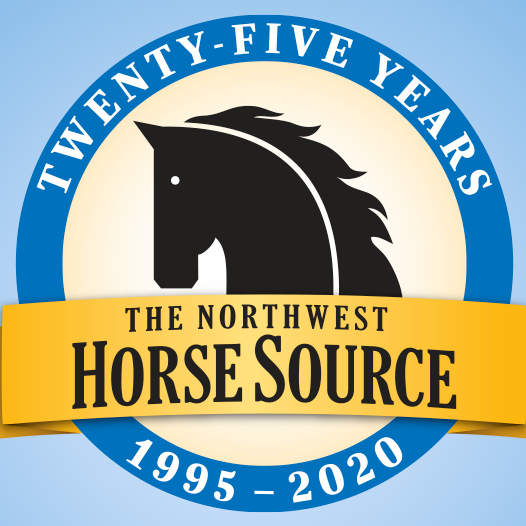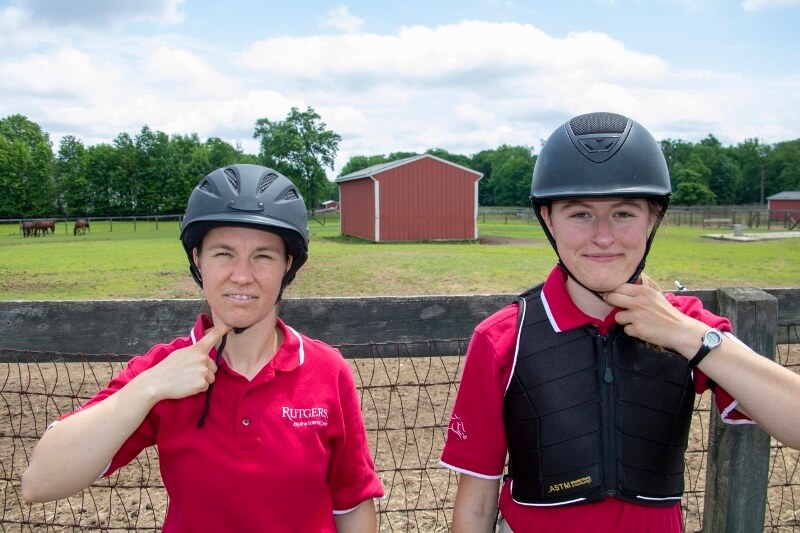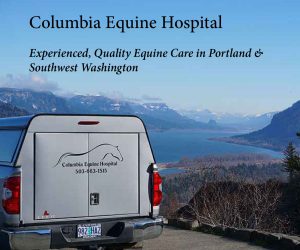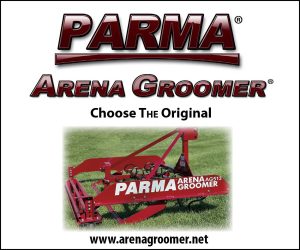Recently Rutgers University addressed riding safety and traumatic brain injuries, and the need to replace helmets and vests more often than most riders think.
According to the Equine Science Center at Rutgers University (https://esc.rutgers.edu/), riding is considered one of the most dangerous sports in the United States because injuries are more likely to be severe and require hospitalization than injuries resulting from other sports, and traumatic brain injuries (TBI) are one of the most common injuries reported among those injured while riding. These injuries can be significantly reduced though, with things like a well-fitting helmet (to reduce the chances of a head injury), or a safety vest (such as a foam safety vest which is designed to protect the torso during a fall).
“Most helmets are recommended to be replaced after 5 years, but other circumstances such as where they are stored, if they have been stored in a temperature safe environment, and even sun exposure can affect the life and effectiveness of a helmet,” said Rutgers University Ph.D. Candidate, Ellen Rankins. “Some of the most important things to remember with helmets though is that each helmet is different, so make sure to find and use the manufacturer’s recommended lifespan for a helmet; and the most important thing is that once a helmet is used to help cushion a fall, the helmet is no longer safe to use no matter how small the fall was.”
Additional protective equipment such as safety vests should also be checked frequently, as each item has its own set of storage, maintenance, and lifespan recommendations. Air vests, which if being used should be worn over a traditional safety vest, also have their own set of recommendations that should be followed.
Even if a helmet or vest has never sustained a significant impact, the time limits remain in place due to deterioration over time. Experts encourage equestrians to check your tack room and make sure all safety equipment is up to date.
Additional Equestrian Safety Information
Helmets:
- Need to be replaced every 5 years (Check the label in the helmet if you’re unsure how old your helmet is.) or sooner if worn during a fall or dropped.
- Helmets should rest ~1inch above your eyebrows and not move if you shake or nod your head.
- Chin straps should be adjusted such that one or two fingers fit between your chin and the helmet strap.
Vests:
- Many cross-country courses and events require that your wear a vest and it can be useful in other situations as well.
- Vests should fit snugly around your torso. Many are adjustable, so be sure to adjust it as your try it on.
- Vests should extend to your collarbone on the upper edge.
- The lower edge of the vest should reach the bottom of your ribcage in the front and the end of your tailbone in the back.
- Remember that air vests should only be worn over a traditional foam vest.
Medical Armbands:
- Like vests, a medical armband is required for some types of equestrian events and shows. Even if not required, a medical armband can be useful as it provides necessary and pertinent information to first responders in case of an accident.
Reflective Equipment and Clothes:
- Reflective gear such as a retroreflective vest are helpful for you and your horse, if you ride along roadways or other locations with traffic.
Safety Stirrups:
- Safety stirrups come in many different styles. All of them are designed to quickly free your foot from the stirrup in the event of a fall and prevent you from being caught in the stirrup.
About the Equine Science Center at Rutgers University
The Equine Science Center is a unit of the New Jersey Agricultural Experiment Station at Rutgers, The State University of New Jersey. Its mission is “Better Horse Care through Research and Education” in order to advance the well-being and performance of horses and the equine industry. Its vision is to be recognized throughout New Jersey as well as nationally and internationally for its achievements in identifying issues in the horse industry, finding solutions through science-based inquiry, providing answers to the horse industry and to horse owners, and influencing public policy to ensure the viability of the horse industry.
For more information about the Equine Science Center, call 848-932-9419 or visit esc.rutgers.edu.

News from the horse industry. Sharing today’s information as it happens. The Northwest Horse Source is not responsible for the content of 3rd party submissions.






